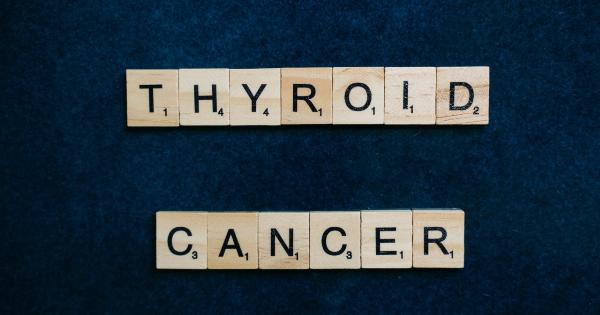Thyroidectomy is a surgical procedure in which the thyroid gland is partially or completely removed. The thyroid gland is located in the neck and produces hormones that are important for the regulation of metabolism, growth, and development.
There are various reasons why someone might need a thyroidectomy, and this article aims to provide an overview of the indications and considerations for this procedure.
Thyroid Nodules
Thyroid nodules are lumps that form in the thyroid gland. They are relatively common and can be detected during routine physical exams or imaging tests. While the majority of thyroid nodules are benign (non-cancerous), some can be cancerous.
If a thyroid nodule is suspected to be cancerous, a thyroidectomy may be recommended in order to remove the affected tissue and prevent the cancer from spreading.
Thyroid Cancer
Thyroid cancer is a relatively rare type of cancer, but it can be aggressive and deadly if not treated early. The most common types of thyroid cancer are papillary and follicular thyroid cancer.
Both of these types of cancer can often be treated with a thyroidectomy, but additional treatments such as radioactive iodine therapy may be recommended as well.
Hyperthyroidism
Hyperthyroidism is a condition in which the thyroid gland produces an excessive amount of hormones. This can lead to symptoms such as weight loss, rapid heartbeat, and anxiety.
There are several treatment options for hyperthyroidism, including medication, radioactive iodine therapy, and surgery. In some cases, a thyroidectomy may be recommended as a permanent solution for hyperthyroidism.
Goiter
A goiter is an enlargement of the thyroid gland. This can occur for several reasons, including an iodine deficiency, inflammation, or a benign or cancerous growth.
In some cases, a thyroidectomy may be necessary to remove the enlarged gland and relieve symptoms such as difficulty swallowing or breathing.
Thyroiditis
Thyroiditis is an inflammation of the thyroid gland. This can be caused by an infection, an autoimmune disorder, or other factors. Treatment for thyroiditis depends on the underlying cause and severity of the inflammation.
In some cases, a thyroidectomy may be recommended to remove a severely damaged or inflamed gland.
Recurrent Thyroid Cancer
In rare cases, thyroid cancer may come back after initial treatment. This is known as recurrent thyroid cancer.
If recurrent thyroid cancer is detected, a thyroidectomy may be recommended to remove the affected tissue and prevent further spread of the cancer.
Considerations
Before undergoing a thyroidectomy, it is important to discuss the risks and benefits of the procedure with a qualified healthcare provider.
Some of the potential risks of a thyroidectomy include damage to the vocal cords or parathyroid glands, infection, bleeding, and changes in hormone levels. Additionally, some people may experience temporary or permanent hoarseness, difficulty speaking or swallowing, or hypothyroidism (a condition in which the thyroid gland does not produce enough hormones).
However, a thyroidectomy can also provide significant relief from thyroid-related symptoms or prevent the spread of cancer.
Conclusion
A thyroidectomy is a surgical procedure to remove part or all of the thyroid gland. This procedure may be recommended for a variety of reasons, including thyroid nodules, thyroid cancer, hyperthyroidism, goiter, thyroiditis, or recurrent thyroid cancer.
However, it is important to discuss the risks and benefits of the procedure with a qualified healthcare provider before deciding on the best course of treatment.



























